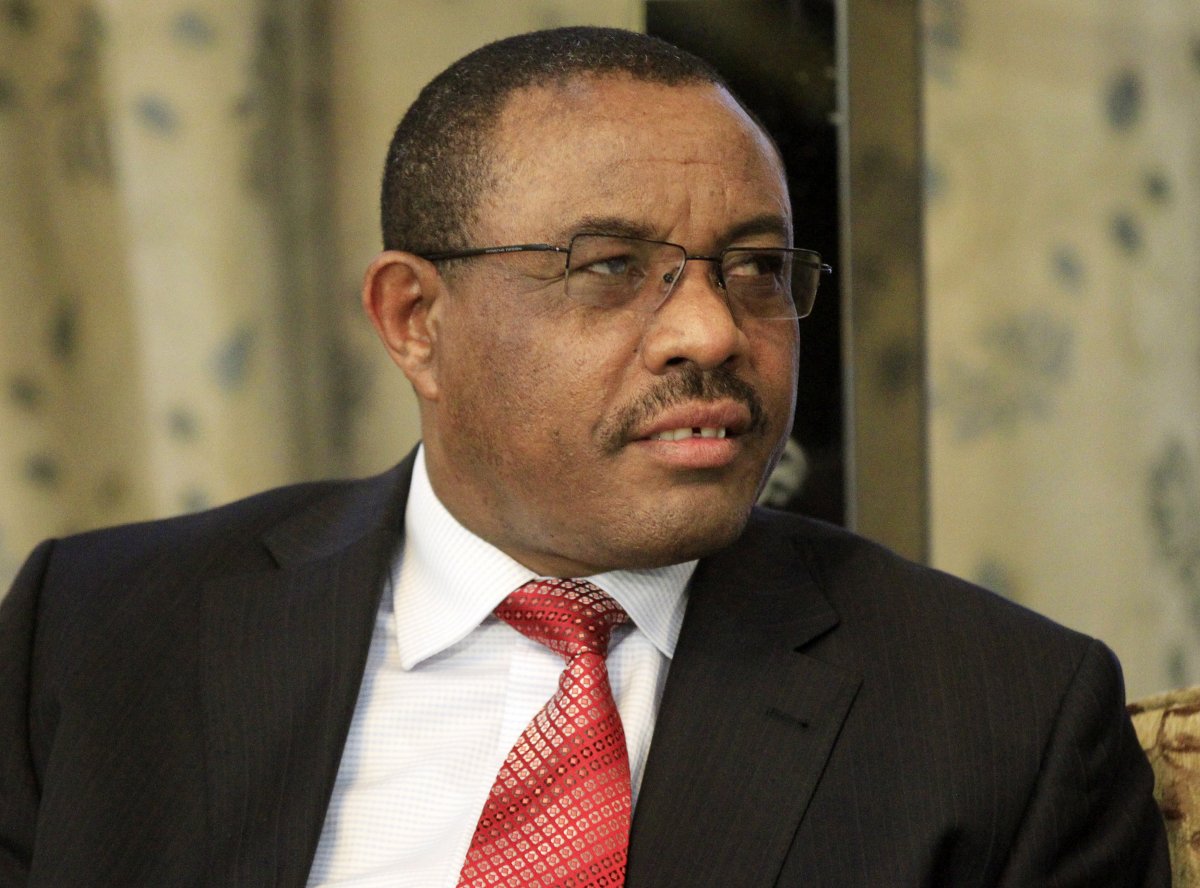Hailemariam Desalegn, Ethiopian prime minister, has submitted a letter of resignation, according to the state-affiliated Fana Broadcasting Corporate station on Thursday, February 15, 2018.
The resignation of Hailemariam, in power since 2012, follows amid protracted anti-government protests and a nationwide state of emergency last year.
His stepping down from power is unprecedented in the vast East African country.
Hailemariam oversaw a smooth handover following the death of former Marxist rebel Meles Zenawi, turning the relatively little-known politician and technocrat into an influential leader.
According to the state Ethiopian News Agency, Desalegn resigned both as prime minister and chair of the ruling party “to be part of the efforts to provide a lasting solution to the current situation.” He added he would stay on until a successor was chosen.
In his speech, Desalegn noted that people had been displaced and injured and property damaged in the recent unrest and that he believed his resignation was necessary to carry out the democratic reforms that were underway.
Earlier in the week, there were widespread demonstrations by the Oromo — the country’s largest ethnic group, representing more than a third of Ethiopia’s 100 million people — over the perceived slow pace of prisoner releases promised in January.
Young men blocked roads leading out of the capital with rocks and burned tires, disrupting public transportation networks. Businesses throughout the vast Oromo region were shuttered as part of a strike.
“His resignation at this point in time is rather extraordinary and surprising. I think from the party perspective, it is clear he has no power and lost control of the streets,” he said. “We should be very clear, this change, the prisoner release and the fact that the party is trying to make amends and reform is the result of years of relentless opposition and protest.”
He warned that choosing a hard line figure from the old guard to be the new prime minister rather than someone from the new rising group of politicians in the ruling party with greater public support would result in more opposition.
There were also rumors swirling on social media that there would be a new state of emergency until another prime minister was selected.
Just two days before the resignation, U.S. Ambassador Michael Raynor expressed a degree of concern over the unrest in the country and urged political opening and peaceful dialogue.
However, in 2015, months of anti-government demonstrations spread across Ethiopia, leaving hundreds dead and prompting parliament to declare a 10-month state nationwide state of emergency in October 2016.
The emergency quelled the worst of the violence but periodic uprisings still occur.
Read more at Washingtonpost







